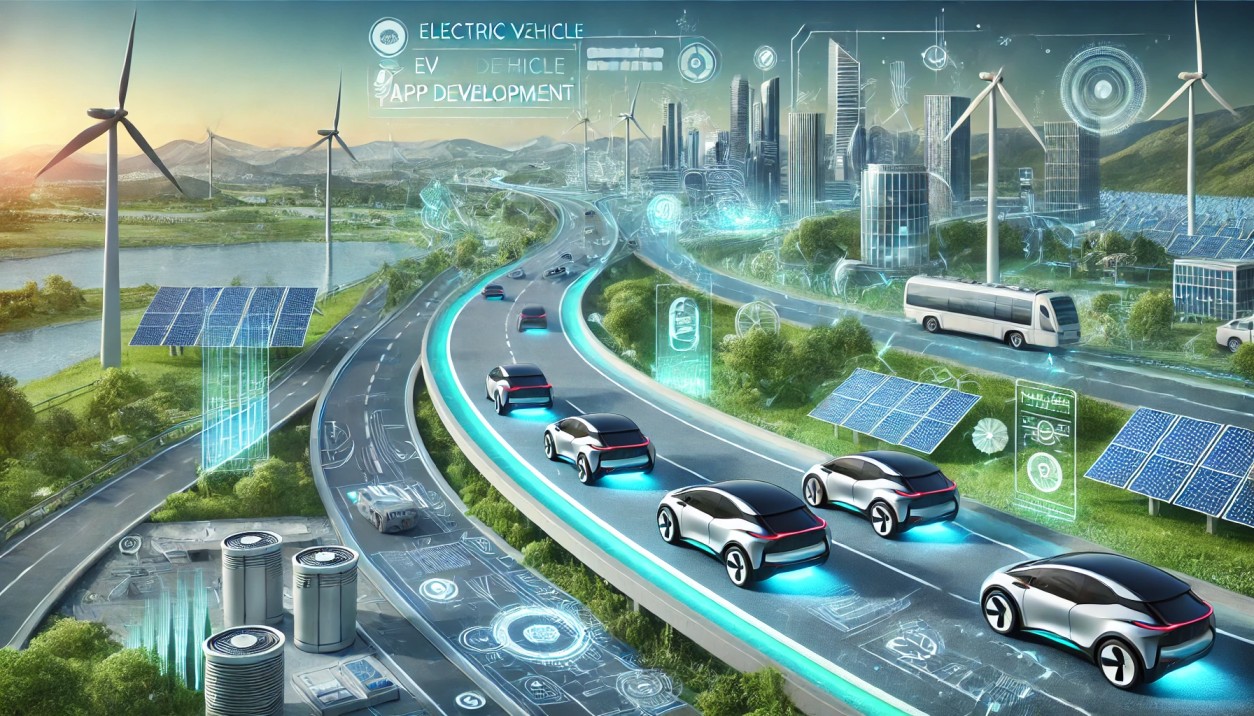Artificial Intelligence (AI) is transforming the way digital applications are designed, developed, and used. In recent years, AI has moved beyond a buzzword to become a powerful force driving innovation across various sectors. Digital apps, from mobile applications to complex web-based systems, are increasingly incorporating AI to offer smarter, more personalized, and more efficient user experiences.
- These innovations are not only improving the functionality of applications but also creating new possibilities for how businesses interact with customers, and how users interact with their devices.
- For example, the introduction of AI-driven systems like the Candy AI clone services has revolutionized how users engage with personalized content, enhancing entertainment and gamification within applications.
- As AI continues to evolve, developers are exploring new methods to integrate it seamlessly into digital applications, enhancing their capabilities and offering more intelligent features.
With advancements in machine learning, natural language processing, and computer vision, AI is helping apps anticipate user needs, streamline operations, and provide unique experiences that were previously unthinkable. The ability of AI to continuously learn and adapt is enabling applications to become more intuitive and responsive.
Key Innovations Shaping the Future of AI in Apps
AI innovations are shaping the evolution of apps in multiple ways, offering enhancements that were once seen as futuristic concepts. These innovations include the following technologies and trends:
1. Machine Learning and Deep Learning
Machine learning and deep learning are driving major advancements in AI applications. These technologies help apps learn from data, improve over time, and perform tasks that require complex decision-making and pattern recognition.
- Machine Learning (ML): Machine learning enables apps to process large datasets, recognize patterns, and make predictions without requiring explicit programming. For instance, e-commerce apps use ML to analyze shopping patterns and suggest personalized products to users. Similarly, social media platforms utilize machine learning to recommend relevant content based on user behavior.
- Deep Learning (DL): Deep learning, a subset of machine learning, is particularly useful in apps that need to process unstructured data like images, audio, or video. Deep learning algorithms power features like facial recognition in security apps, voice recognition in virtual assistants, and autonomous navigation in self-driving cars.
2. Natural Language Processing (NLP)
Natural language processing (NLP) is a field of AI that focuses on the interaction between computers and human language. Innovations in NLP are making apps more conversational and capable of understanding, interpreting, and responding to human language in meaningful ways.
- Voice Assistants: Virtual assistants such as Siri, Alexa, and Google Assistant use NLP to comprehend spoken commands and respond with relevant information. These assistants can carry out tasks like setting reminders, sending messages, or controlling smart devices through simple voice commands.
- Sentiment Analysis and Chatbots: NLP also powers chatbots that provide customer service in apps. These bots use NLP to understand text input from users, enabling them to resolve queries or direct users to the appropriate support team. Additionally, sentiment analysis algorithms allow businesses to gauge customer feedback, identify potential issues, and improve services accordingly.
3. AI-Powered Personalization
AI’s ability to provide personalized experiences is one of its most valuable applications in the digital world. Apps that use AI to track and analyze user behavior can offer highly personalized content, making them more engaging and relevant to each individual.
- Custom Content Recommendations: Streaming platforms like Netflix or YouTube rely on AI to analyze a user’s viewing history and suggest content tailored to their interests. Similarly, e-commerce platforms use AI to recommend products based on previous purchases or browsing behavior.
- Adaptive User Interfaces: Many applications are now using AI to modify their interfaces based on user preferences. For example, a fitness app may alter its workout plans or suggest new exercises based on the user’s progress, goals, and feedback.
4. Automation and Workflow Optimization
AI is increasingly being integrated into apps to automate tasks and optimize workflows. By using AI to handle repetitive or time-consuming tasks, digital applications can improve efficiency and reduce the need for manual intervention.
- Automated Customer Service: Many businesses now deploy AI-powered chatbots to handle routine customer service queries, freeing up human agents to focus on more complex issues. This enhances the customer experience by providing instant responses to common questions.
- Process Automation in Enterprises: Business applications, such as enterprise resource planning (ERP) systems and customer relationship management (CRM) tools, leverage AI to automate processes like data entry, invoice processing, and lead generation. This leads to greater accuracy, faster operations, and lower operational costs.
5. Computer Vision and Augmented Reality (AR)
AI-driven computer vision and augmented reality (AR) technologies are creating immersive experiences and expanding the functionality of digital applications, especially in sectors like retail, healthcare, and entertainment.
- Object and Image Recognition: AI-powered apps can now recognize objects, faces, and even text within images. This has wide-ranging applications, from enabling users to scan barcodes for product details to helping security apps identify faces or detect anomalies in real-time.
- Augmented Reality: AR apps powered by AI enable users to interact with virtual elements in the real world. For example, apps like Pokémon Go use AI to position virtual objects on real-world maps, creating an interactive experience. In retail, AR apps allow customers to virtually try on clothes or visualize how furniture would look in their homes.
6. Edge AI and Real-Time Processing
Edge AI refers to the practice of processing data on devices (such as smartphones or IoT devices) instead of relying solely on cloud-based servers. This innovation is particularly valuable for apps that require quick processing, minimal latency, or need to function in areas with limited connectivity.
- Real-Time Data Processing: Applications such as navigation or autonomous vehicle systems use edge AI to process data from sensors and cameras in real-time, enabling rapid decision-making.
- Improved Privacy and Security: Since edge AI reduces the need to send sensitive information to the cloud, it enhances privacy and security. This is particularly beneficial in areas like healthcare or finance, where data security is crucial.
7. AI in Cybersecurity
As cyber threats become more sophisticated, AI is helping to protect digital apps and their users from potential risks. AI-powered cybersecurity applications can identify and respond to threats more effectively than traditional systems.
- Threat Detection: AI algorithms can analyze network traffic and detect unusual patterns that may indicate a security breach. For example, they can identify suspicious login attempts, malware, or phishing attacks in real-time.
- Fraud Prevention: In financial services, AI is used to detect fraudulent transactions by analyzing spending patterns. When something unusual is detected—like a sudden large withdrawal or transaction from an unusual location—AI can trigger an alert or even block the transaction.
8. AI for Accessibility
One of the most impactful applications of AI is in improving accessibility for people with disabilities. By integrating AI into apps, developers can create more inclusive solutions that cater to a wider range of users.
- Speech-to-Text and Text-to-Speech: AI-powered apps can convert spoken words into text for individuals with hearing impairments and read text out loud for those with visual impairments.
- Gesture Recognition: Apps that use AI to recognize hand gestures or eye movements enable users with limited mobility to interact with devices more easily. EV app development firms are incorporating AI to enable hands-free control of electric vehicles, offering greater accessibility for those with physical disabilities.
Conclusion
The rapid advancements in AI are shaping the future of digital applications, allowing for more efficient, personalized, and accessible solutions. Innovations like machine learning, NLP, computer vision, and edge AI are enhancing the functionality and capabilities of apps across various industries.
As AI continues to evolve, it will enable even more dynamic, responsive, and intelligent applications, fundamentally transforming how businesses operate and how users engage with technology.
The potential for AI in the digital app landscape is vast, and the next generation of AI-powered applications promises to be even more integrated into everyday life, providing benefits that extend far beyond what is possible today.





